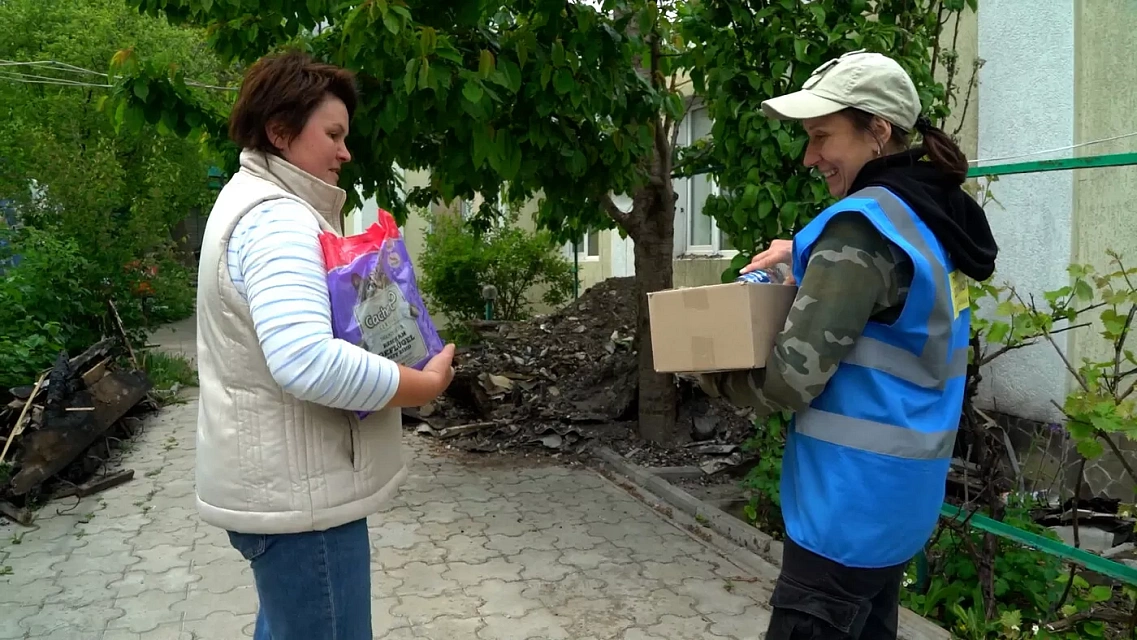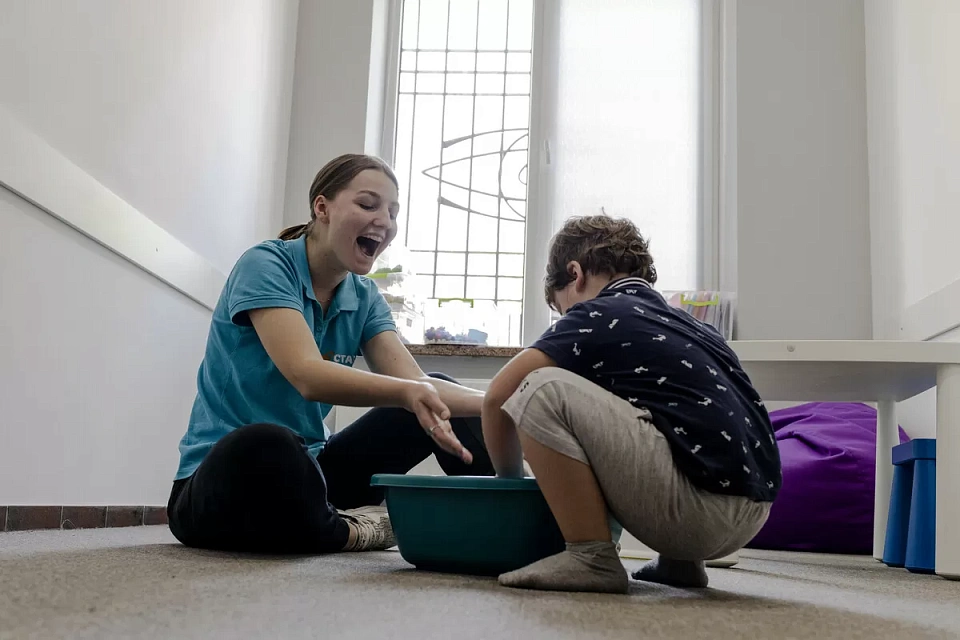More Than £1,000,000 to Help Ukraine
True Russia took part in the Disasters Emergency Committee's assistance programmes for Ukrainian refugees


In the early days of the war, True Russia issued an anti-war manifesto and immediately began fundraising and supporting charitable activities in favour of Ukrainian refugees and later on for Russians who were forced to leave the country.
In the first three months of the war, True Russia raised over 1,300,000 USD (1,048,280 GBP) and all of these funds went in full to the UK Disasters Emergency Committee (DEC) for a humanitarian aid programme for Ukrainian refugees.
The DEC operates as a fund of funds, and in its Ukrainian relief programme it has brought together major international NGOs and over 2,000 local initiatives operating directly in Ukraine, on the borders with neighbouring countries and inside those countries, such as Poland, Romania, Moldova and Hungary, which all have taken refugees in.
The DEC has released a report on its activities in the first three months of the war, outlining what it has been able to achieve with the help of donations from all over the world from various organisations and individuals. We are glad that, thanks to your help, we have been able to take part in this ambitious yet very concrete activity and want to share some figures and facts.
At the time of publication, more than £380 million had been raised. In Ukraine, over seven million people are now internally displaced and over six million have crossed the border and become refugees. In the first three months, most of the funds were spent within Ukraine itself, with the rest going to help refugees in neighbouring countries or support local initiatives. Assistance consisted of food, water and shelter for displaced families, as well as medical assistance to institutions.
Medical aid. DEC's charities worked in coordination with the Ukrainian authorities, providing medicines, trauma and first aid kits, renovating hospitals and providing equipment.
A separate area of work was direct financial support to families, providing them with cash or vouchers as well as food.
Much of the infrastructure in Ukraine has been damaged as a result of the war, so the DEC is working to restore the water supply and provide people with clean drinking water.
A network of Blue Dot centres has been established at borders and along transit routes to help women and children.
Some funds have been used to set up temporary housing for displaced people and their host organisations.
Behind the charts and reports are the stories of thousands of people and it is impossible to tell about all of them, but it is enough for some to know that our help goes to real causes and specific people.
One of the many local initiatives with which the Committee has collaborated has been a team of cyclists in Kharkiv who deliver food to Kharkiv residents who have been unable or unwilling to leave the city. One member of the cycling team is Alexander, 50, an engineer. He sent his family to safety and stayed behind: "I want to be useful and be an example for my children in the future. We are united by a common goal to help. We live our lives without making plans for the future. We just wake up, deliver the groceries, a couple of hours of free time and it's all over again. We are alive, and that is enough to be happy.
Ivanna still works as a therapist in Kharkiv: "February 24 is a date I will never forget. When the shells hit our house, the whole family got together, a fire started, it started spreading quickly and soon the whole house was engulfed in flames. Fortunately, the fire brigade reacted quickly and managed to stop the fire from spreading further. No one was hurt. It was a miracle.
The needs of my patients and my daily routine spare me thoughts of an uncertain future. I take care of my son, who is still in school on a distance learning programme. Despite the difficulties, I will never leave Kharkiv. It's my city. And even if I decided to leave, what would I do with my pets? What would happen to them?".
Apart from participation in the DEC programme, True Russia supported other charity projects and fundraisers. For example, thanks to your help, we raised £20,000 for the WeHelpUkrainians fund, with which we bought and delivered the necessary clothes, toys and food for the children evacuated in Zaporizhzhia. Fundraising for the Polish WEDA Foundation, whose co-founder is playwright Ivan Vyrypaev, is currently underway and will be used to buy equipment for schoolchildren evacuated from Ukraine to Poland.
We also continue to support other anti-war foundations, associations, and individual initiatives by publishing information about them and their fundraisers in a catalogue on our website.
By supporting True Russia, you become part of the movement against war, for democracy. Thank you for being with us, together we can continue to help and move forward.
Left to right: Ivanna (left), a doctor from Kharkiv, who lost her home, destroyed in the fighting, but decided not to leave her hometown and her patients behind. Photo: Dmytro Minyailo/DEC; classes at a centre for children with special needs who have been relocated from war zones. Lviv, Ukraine. Photo: Kasia Strek/DEC